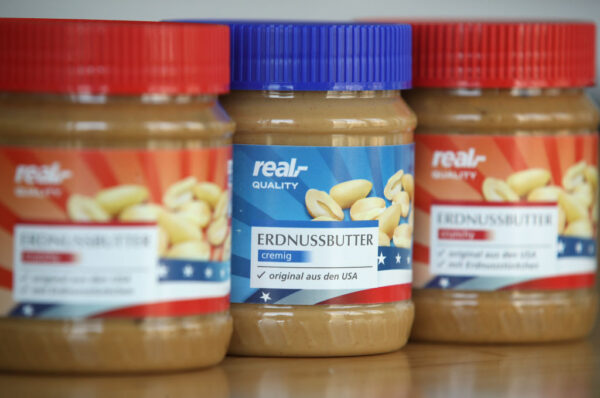
The Food and Drug Administration has called off the advisory committee meeting it had scheduled for the middle of May to discuss a drug to treat peanut allergy due to questions about its efficacy.
Montrouge, France-based DBV Technologies said Monday night that a meeting of the FDA’s Allergenic Products Advisory Committee to discuss its approval application for the Viaskin Peanut patch, scheduled for May 15, would not take place as scheduled. The agency has identified questions about efficacy and the patch’s adhesion to the skin. The company said it is in talks with the FDA about potentially submitting additional information on patch-site adhesion, as well as long-term efficacy data.
Shares of DBV were down 56% on the Euronext Paris when that market closed Tuesday. They were also down 54% on the Nasdaq mid-day Tuesday.
“We appreciate the ongoing dialogue with the FDA and look forward to further discussions in the coming weeks,” DBV CEO Daniel Tasse said in a statement. “We believe in the clinical benefit observed in Viaskin Peanut clinical trials to date and will continue to work closely with the FDA to potentially bring Viaskin Peanut to children as quickly as possible.”
The firm said in October that the FDA had accepted its application seeking review for the patch, designed to reduce the risk of allergic reactions in children aged 4-11. That came a month after the Allergenic Products Advisory Committee voted in favor of recommending approval for another treatment to reduce the risk of peanut allergy, Aimmune Therapeutics’ Palforzia, in children aged 4-17. The agency approved Palforzia in January.
In a note to investors Monday, Baird analyst Brian Skorney wrote that while the first patients had been dosed with Palforzia, and 600 allergists had become Risk Evaluation and Mitigation Strategy-certified to administer the drug, there are concerns that social distancing due to the ongoing Covid-19 pandemic could challenge the face-to-face interaction required for therapy. Meanwhile, Skorney noted, his team has long been of the view that the FDA would not approve DBV’s patch, and that it continues to anticipate it will not, calling it “dead in the water” following the Monday announcement.

A Deep-dive Into Specialty Pharma
A specialty drug is a class of prescription medications used to treat complex, chronic or rare medical conditions. Although this classification was originally intended to define the treatment of rare, also termed “orphan” diseases, affecting fewer than 200,000 people in the US, more recently, specialty drugs have emerged as the cornerstone of treatment for chronic and complex diseases such as cancer, autoimmune conditions, diabetes, hepatitis C, and HIV/AIDS.
Photo: Sean Gallup, Getty Images













